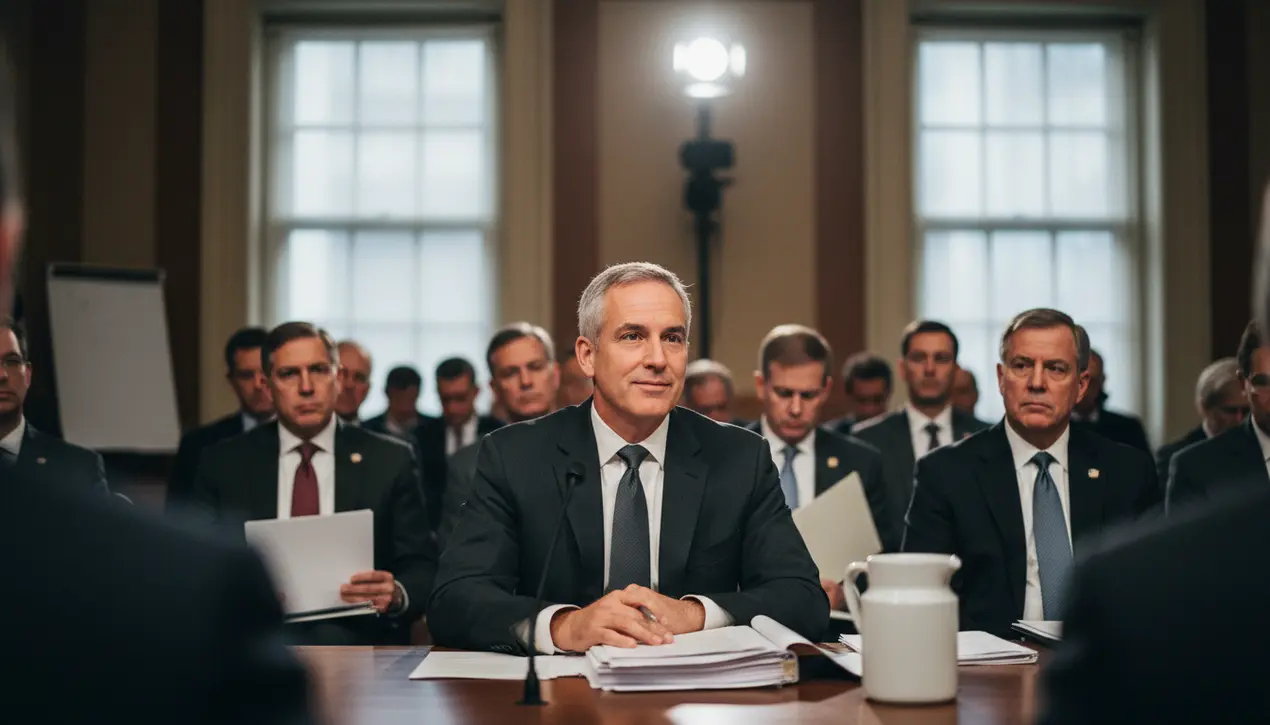- News
- finance
- Senate banking panel advances Trump’s FDIC pick Travis Hill as agency shifts its crypto approach

FinancebankingBank Regulations
Senate banking panel advances Trump’s FDIC pick Travis Hill as agency shifts its crypto approach
CH
Chloe Evans
3 hours ago7 min read1 comments
In a move that signals a significant pivot for one of America's most venerable financial watchdogs, the Senate Banking Committee has advanced the nomination of Travis Hill to the Federal Deposit Insurance Corporation (FDIC), setting the stage for a full Senate vote that could recalibrate the agency's entire approach to the burgeoning world of digital assets. Hill, a former senior advisor to FDIC Chairman Jelena McWilliams, is no stranger to the intricate dance between traditional finance (TradFi) and decentralized finance (DeFi), and his ascent comes at a critical juncture.The FDIC, long the guardian of the classic deposit insurance model, has been grappling with how to handle the crypto question—from the treatment of reserves held at crypto-friendly banks like Custodia to the broader implications of blockchain-based financial products for the very concept of deposit insurance. Hill's expected confirmation would inject a more nuanced, technically-savvy perspective into an agency that has, at times, appeared cautious to the point of stagnation.His background suggests a regulator who understands that the future of finance isn't a binary choice between the legacy system and the wild west of crypto, but a complex hybridization where tokenized assets and smart contracts will inevitably interact with insured deposits. This isn't merely a personnel change; it's a philosophical shift.Under previous leadership, the FDIC's stance could be characterized as defensive, issuing warnings to banks about the risks of engaging with crypto-assets. With Hill, we are likely to see a more proactive, framework-oriented approach, one that seeks to build guardrails for innovation rather than simply erecting barriers.This could manifest in clearer guidance on what constitutes a permissible crypto-related activity for an FDIC-insured institution, potentially unlocking new avenues for banks to custody digital assets or even engage in node operation for permissioned blockchain networks. The implications are vast, extending beyond U.S. borders.A more crypto-accommodative FDIC could pressure other major financial regulators, from the UK's Prudential Regulation Authority to the European Central Bank, to accelerate their own regulatory clarity or risk ceding competitive ground. However, the path forward is fraught with political and technical challenges.Progressive lawmakers and traditional banking skeptics will be watching closely, concerned that any relaxation could expose the deposit insurance fund to unprecedented risks from a volatile asset class. The ghost of the 2008 financial crisis, where regulatory complacency played a central role, looms large over these discussions.Furthermore, the technical hurdles are immense—how does one accurately value a crypto-asset portfolio for insurance purposes? How does the concept of a 'pass-through' insurance policy apply to a decentralized autonomous organization (DAO) holding funds in a smart contract? Hill's tenure, if confirmed, will be defined by his ability to navigate these uncharted waters, bridging the deep-seated conservatism of the TradFi world with the disruptive, protocol-driven ethos of DeFi. The full Senate vote is not just a confirmation of a regulator; it is a referendum on whether the U.S. financial system's foundational pillars can be retrofitted for a digital future, and all eyes in both Wall Street and Crypto Twitter will be on the outcome.
#FDIC
#Travis Hill
#Senate confirmation
#banking regulation
#crypto policy
#featured
Stay Informed. Act Smarter.
Get weekly highlights, major headlines, and expert insights — then put your knowledge to work in our live prediction markets.
Related News
Comments
Loading comments...
© 2025 Outpoll Service LTD. All rights reserved.